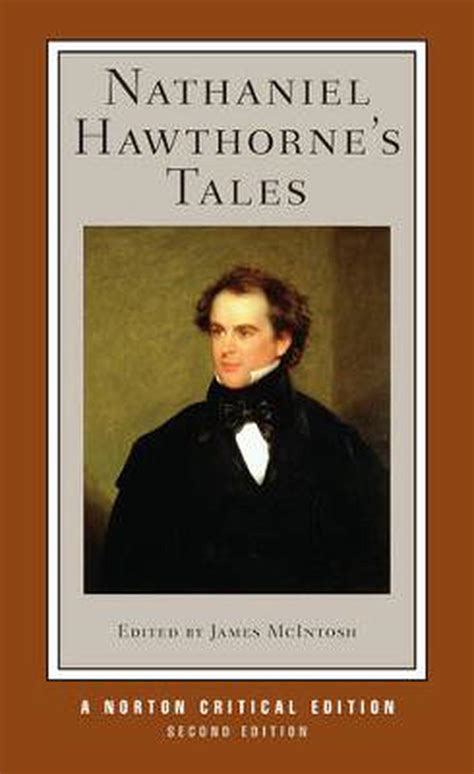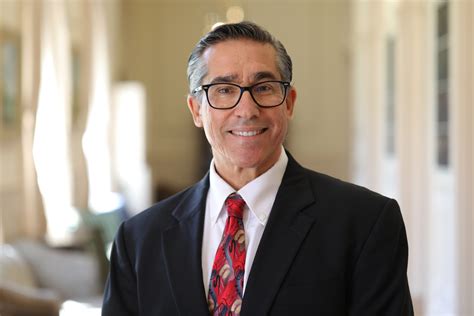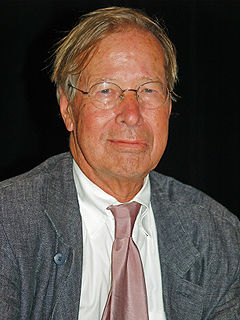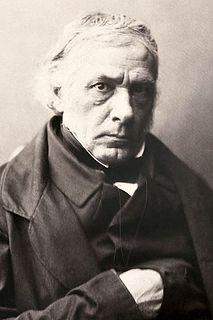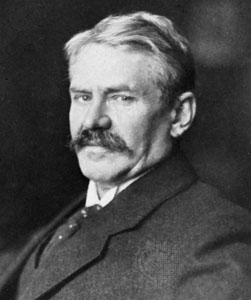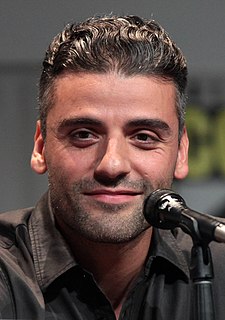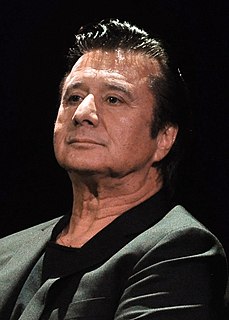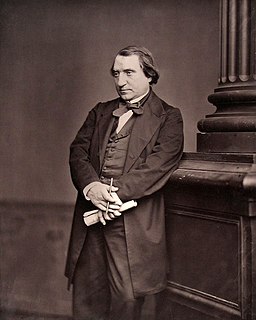Top 1200 Morality And Ethics Quotes & Sayings - Page 5
Explore popular Morality And Ethics quotes.
Last updated on April 19, 2025.
See, then, how powerful religion is; it commands the heart, it commands the vitals. Morality,--that comes with a pruning-knife, and cuts off all sproutings, all wild luxuriances; but religion lays the axe to the root of the tree. Morality looks that the skin of the apple be fair; but religion searcheth to the very core.
Most thoughtful people would agree that morality in the absence of policing is somehow more truly moral than the kind of false morality that vanishes as soon as the police go on strike or the spy camera is switched off, whether the spy camera is a real one monitored in the police station or an imaginary one in heaven.
It was morality that burned the books of the ancient sages, and morality that halted the free inquiry of the Golden Age and substituted for it the credulous imbecility of the Age of Faith. It was a fixed moral code and a fixed theology which robbed the human race of a thousand years by wasting them upon alchemy, heretic-burning , witchcraft and sacerdotalism.
Of all the dispositions and habits which lead to political prosperity, religion and morality are indispensable supports. In vain would that man claim tribute to patriotism who should labor to subvert these great pillars of human happiness - these firmest props of the duties of men and citizens. . . . reason and experience both forbid us to expect that national morality can prevail in exclusion of religious principles.
Marriage and parenting are the two strongest vows anyone will ever make. When you see these commitments being carelessly discarded, you can be certain that the ethics of that generation have been abandoned. ... What our society needs is a good dose of biblical ethic from God's people - the kind of ethic that requires us to keep our word no matter what the costs. Situational ethics have so shaped our society that even God's people have lost the concept of absolutes when it comes to keeping our word.
How can anyone think so insanely that the human life has the same value and mankind, the same morality, independent of numbers? It is lucid to me that everytime a new child is born, the value of every human in world decreases slightly. It is obvious to me that the morality of the population explosion is wholly unlike than when man was a sparse, noble species in its beginning.
The conservative movement, to which I subscribe, has as one of its basic tenets the belief that government should stay out of people’s private lives. Government governs best when it governs least – and stays out of the impossible task of legislating morality. But legislating someone’s version of morality is exactly what we do by perpetuating discrimination against gays.
A code of ethics cannot be developed overnight by edict or official pronouncement. It is developed by years of practice and performance of duty according to high ethical standards. It must be self-policing. Without such a code, a professional soldier or a group soon loses identity and effectiveness. Once we know our job, have a genuine code of ethics, and maintain unquestioned personal integrity, we have met the first and most demanding challenge of leadership.
Whatever efforts one may make, one must revert to the realization that religion is the real basis of morality; religion is the real and perceptible purpose within us, which alone, can turn aside our attention from things. ... The science of morality can no more teach human beings to be honest, in all the magnificence of this word, than geometry can teach one how to draw.
Let it simply be asked where is the security for property, for reputation, for life, if the sense of religious obligation deserts the oaths, which are the instruments of investigation in the Courts of Justice? And let us with caution indulge the opposition, that morality can be maintained without religion. Whatever may be conceded to the influence of refined education on minds of peculiar structure, reason and experience both forbid us to expect that National morality can prevail in exclusion of religious principle.
So much confusion about belief in God, morality, and science arises, not from what people say they believe, but rather from mistaken assumptions about God, morality, and science that they don't know they believe. In Three Theological Mistakes, Ric Machuga, with clarity and grace, explains the genesis of these mistakes and provides the intellectual tools by which we can recover from them.
The founders of this nation understood that private morality is the fount from whence sound public policy springs. Replying to Washington's first inaugural address, the Senate stated: "We feel, sir, the force and acknowledge the justness of the observation that the foundation of our national policy should be lain in private morality. If individuals be not influenced by moral principles it is in vain to look for public virtue."
You have chosen to risk your lives for the defense of this country. I will not insult you by saying that you are dedicated to selfless service--it is not a virtue in my morality. In my morality, the defense of one's country means that a man is personally unwilling to live as the conquered slave of any enemy, foreign or domestic. This is an enormous virtue.
Many a man renounces morals, but with great difficulty the conception, 'morality.' Morality is the 'idea' of morals, their intellectual power, their power over the conscience; on the other hand, morals are too material to rule the mind, and do not fetter an 'intellectual' man, a so-called independent, a 'freethinker.'
Christians believe that God created man, and humanists believe that man invented God. But whichever way you look at it, we're brothers and sisters. Either we're brothers and sisters because we're children of God, or because we've banded together to invent God. So the ethics of the humanist and the ethics of some Christians are very similar. And we don't want to create divisions between humanists and Liberation Theologians, any more than we want between the New Worker and the Trots. It's not helpful.
To think the welfare and the goodness of the next generations is indeed a good ethics, but there is much greater ethics than this: To think the welfare and the goodness of the current generations, the very people of now! The reason is simple: Future may not exist, it is only a possibility, but the people of now are not possibility, they are here!
Zarathustra was the first to consider the fight of good and evil the very wheel in the machinery of things: the transposition of morality into the metaphysical realm, as a force, cause, and end in itself, is his work. [...] Zarathustra created this most calamitous error, morality; consequently, he must also be the first to recognize it.
My chief aim was to combat the view that there can be no true morality without supernatural sanctions. So I argued at length that the social, or altruistic, impulses are the real source of morality, and that an ethic based on these impulses has far more claim on our allegiance than an ethic based on obedience to the commands of a God who created tapeworms and cancer-cells.
The notion of ambiguity must not be confused with that of absurdity. To declare that existence is absurd is to deny that it can ever be given a meaning; to say that it is ambiguous is to assert that its meaning is never fixed, that it must be constantly won. Absurdity challenges every ethics; but also the finished rationalization of the real would leave no room for ethics; it is because man's condition is ambiguous that he seeks, through failure and outrageousness, to save his existence.
Talking about sexual morality, I wouldn't agree that it's declining, but it's certainly changing. Young and old, we are very much in the process of taking a fresh look at the whole issue of morality. The only decline that's taking place - and it's about time - is in the old puritanical concept that sex is equated with sin.
Suspending moral judgment is not the immorality of the novel; it is its morality. The morality that stands against the ineradicable human habit of judging instantly, ceaselessly, and everyone; of judging before, and in the absence of, understanding. From the viewpoint of the novel's wisdom, that fervid readiness to judge is the most detestable stupidity, the most pernicious evil.
My view of ethics and of its priority is connected to my view that we are fundamentally relational beings - both the product of human interactions, as well as committed as part of the expression of our own humanity to various social involvements. I see ethics as having two places in the maintenance of these relational activities - first as providing the basic coinage of our interactions qua humans and second as mediating the various roles we assume as humans.
I'm not saying that atheists can't act morally or have moral knowledge. But when I ascribe virtue to an atheist, it's as a theist who sees the atheist as conforming to objective moral values. The atheist, by contrast, has no such basis for morality. And yet all moral judgments require a basis for morality, some standard of right and wrong.
…the samurai ethic is a political science of the heart, designed to control such discouragement and fatigue in order to avoid showing them to others. It was thought more important to look healthy than to be healthy, and more important to seem bold and daring than to be so. This view of morality, since it is physiologically based on the special vanity peculiar to men, is perhaps the supreme male view of morality.
We can assume that most people, most of the time, are moral creatures. But imagine that this morality is like a gearshift that at times gets pushed into neutral. When that happens, morality is disengaged. If the car happens to be on an incline, car and driver move precipitously downhill. It is then the nature of the circumstances that determines outcomes, not the driver's skills or intentions.
No value is higher than self-esteem, but you've invested it in counterfeit securities-and now your morality has caught you in a trap where you are forced to protect your self-esteem by fighting for the creed of self-destruction. The grim joke is on you: that need of self-esteem, which you're unable to explain or to define, belongs to my morality, not yours; it's the objective token of my code, it is my proof within your own soul.
The most important human endeavor is the striving for morality in our actions. Our inner balance and even our very existence depend on it. Only morality in our actions can give beauty and dignity to life. Albert Einstein It is the function of art to renew our perception. What we are familiar with we cease to see. The writer shakes up the familiar scene, and, as if by magic, we see a new meaning in it.
Libertarianism is the simple morality we learned as children: Don’t strike first, don’t steal or cheat, keep your promises. If you inadvertently fail to live up to these standards, make it up to the person you’ve harmed. If someone harms you, you may defend yourself as needed to stop the aggressor and obtain reparations. This simple morality works group-to-group just as it works one-to-one to bring about a peaceful and prosperous world.
Ethics has not only to do with mankind but with the animal creation as well. This is witnessed in the purpose of St. Francis of Assisi. Thus we shall arrive that ethics is reverence for all life. This is the ethic of love widened universally. It is the ethic of Jesus now recognized as a necessity of thought...Only a universal ethic which embraces every living creature can put us in touch with the universe and the will which is there manifest.
The world is ruled by neither justice nor morality; crime is not punished nor virtue rewarded, one is forgotten as quickly as the other. The world is ruled by power and power is obtained with money. To work is senseless, because money cannot be obtained through work, but through exploitation of others. And if we cannot exploit as much as we wish, at least let us work as little as we can. Moral duty? We believe neither in the morality of man nor in the morality of systems. [p. 168]
For the superior morality, of which we hear so much, we too would desire to be thankful: at the same time, it were but blindness to deny that this superior morality is properly rather an inferior criminality, produced not by greater love of Virtue, but by greater perfection of Police; and of that far subtler and stronger Police, called Public Opinion.
Society mediates between the extremes of, on the one hand, intolerably strict morality and, on the other, dangerously anarchic permissiveness through an unspoken agreement whereby we are given leave to bend the rules of the strictest morality, provided we do so quietly and discreetly. Hypocrisy is the grease that keeps society functioning in an agreeable way, by allowing for human fallibility and reconciling the seemingly irreconcilable human needs for order and pleasure.
The relations between parents and children are certainly not only those of constraint. There is spontaneous mutual affection, which from the first prompts the child to acts of generosity and even of self-sacrifice, to very touching demonstrations which are in no way prescribed. And here no doubt is the starting point for that morality of good which we shall see developing alongside of the morality of right or duty, and which in some persons completely replaces it.
Humans suffer from self-centred notions as to the nature of life. Humans assume that alien life forms should conform to standards that match our own, including logic and morality. Even among humans, morality is ignored when expedient. Why should we expect more from an alien life form than we demand from ourselves?
Politics and morality are inseparable. And as morality's foundation is religion, religion and politics are necessarily related. We need religion as a guide. We need it because we are imperfect, and our government needs the church, because only those humble enough to admit they're sinners can bring to democracy the tolerance it requires in order to survive.
Some people think that in order to lead a morally decent life one may sometimes have to forego the possibility of having a good life oneself. Even if that is true, it does not render morality incredible, but it does raise a question about morality's authority: about what one has most reason to do when one is faced with a conflict of this kind.
Robert Torricelli, a powerful fund-raiser who helped raise more than $100 million for the Democratic party, took inappropriate gifts from a businessman, including an $8,000 gold Rolex watch, for which he was severely admonished by the Senate Ethics Committee in July. To recap: raising $100 million in contributions from gigantic corporations - ethical; taking a watch - unethical. That's the Senate Ethics Committee, an oxymoron since 1974.
When one gives up the Christian faith, one pulls the right to Christian morality out from under one's feet. This morality is by no means self-evident. Christianity is a system, a whole view of things thought out together. By breaking one main concept out of it, the faith in God, one breaks the whole. It stands or falls with faith in God.
Some people automatically associate morality and altruism with a religious vision of the world. But I believe it is a mistake to think that morality is an attribute only of religion. We can imagine two types of spirituality: one tied to religion, while the other arises spontaneously in the human heart as an expression of love for our neighbors and a desire to do them good.
We can hardly say that the Pharisees had an accurate ‘knowledge’ of man when they pointed to the sins (the real sins) of publicans and sinners. This judgment, which separated knowledge of man from self-knowledge, was as nothing in God’s eyes. The Jew did not have a better understanding because he was able to judge the heathen. In the sphere of abstract morality this could possibly be said, but this is not Biblical morality - O man, who judgest others!
For myself, as, no doubt, for most of my contemporaries, the philosophy of meaninglessness was essentially an instrument of liberation. The liberation we desired was simultaneously liberation from a certain political and economic system and liberation from a certain system of morality. We objected to the morality because it interfered with our sexual freedom.
Morality has been conceived up to the present in a very narrow spirit, as obedience to a law, as inner struggle between opposite laws. As for me, I declare that when I do good I obey no one, I fight no battle and win no victory. The cultivated person has only to follow the delicious incline of his or her inner impulses. Be beautiful and then do at each moment whatever your heart may inspire you to do. This is the whole of morality.


